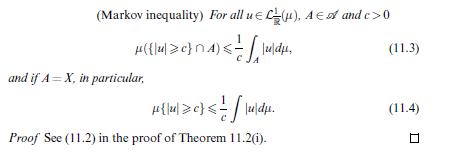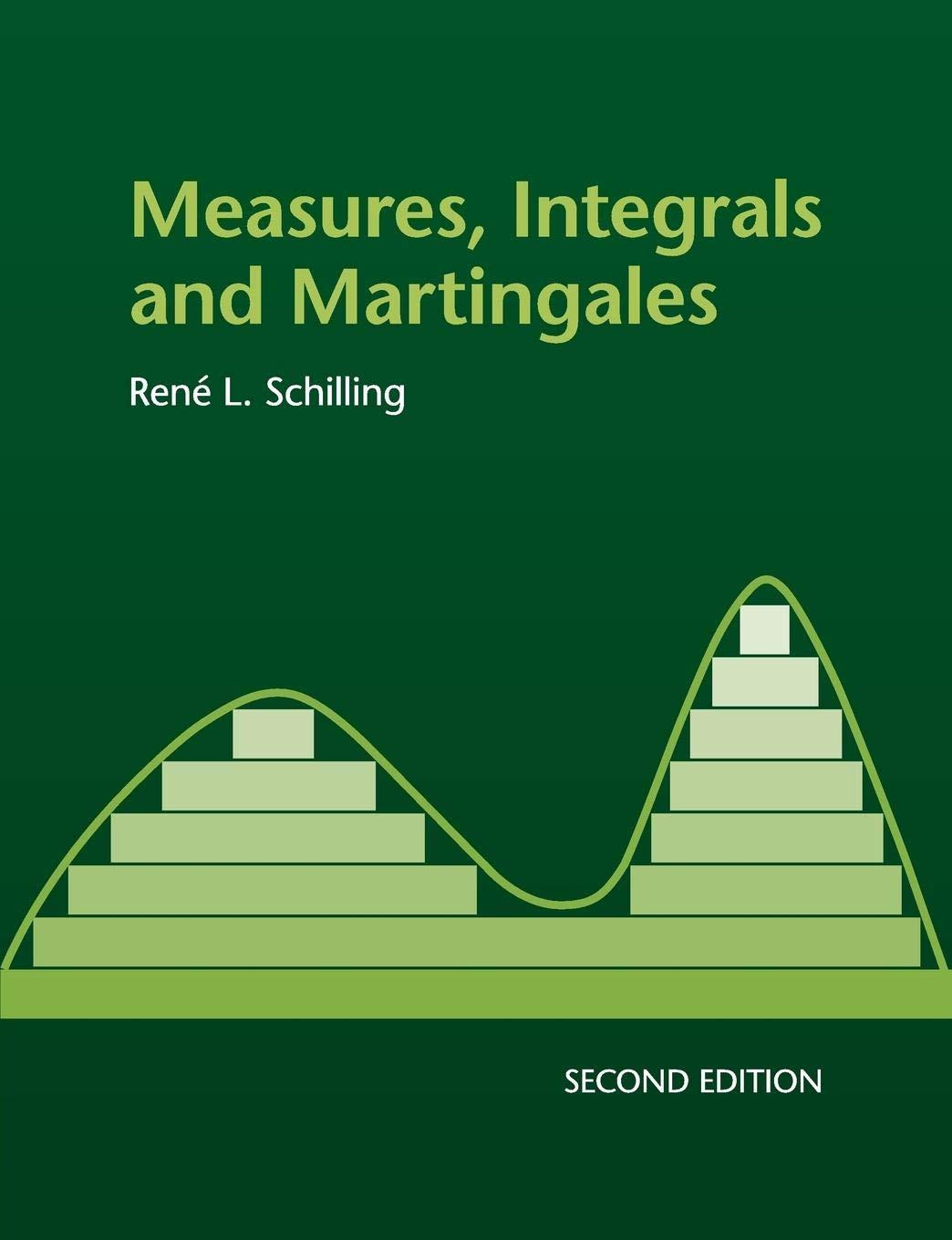Prove the following variants of the Markov inequality Proposition 11.5 . For all (alpha, c>0) and whenever
Question:
Prove the following variants of the Markov inequality Proposition 11.5 . For all \(\alpha, c>0\) and whenever the expressions involved make sense/are finite,
(i) \(\mu\{|u|>c\} \leqslant \frac{1}{c} \int|u| d \mu\)
(ii) \(\mu\{|u|>c\} \leqslant \frac{1}{c^{p}} \int|u|^{p} d \mu\) for all \(0
(iii) \(\mu\{|u| \geqslant c\} \leqslant \frac{1}{\phi(c)} \int \phi(|u|) d \mu\) for \(\phi: \mathbb{R}_{+} ightarrow \mathbb{R}_{+}\)increasing;
(iv) \(\mu\left\{u \geqslant \alpha \int u d \muight\} \leqslant \frac{1}{\alpha}\) for \(u \geqslant 0\);
(v) \(\mu\{|u| (vi) \(\mathbb{P}(|\xi-\mathbb{E} \xi| \geqslant \alpha \sqrt{\mathbb{V} \xi}) \leqslant \frac{1}{\alpha^{2}}\), where \((\Omega, \mathscr{A}, \mathbb{P})\) is a probability space, \(\xi\) is a random variable (i.e. a measurable function \(\xi: \Omega ightarrow \mathbb{R}\) ), \(\mathbb{E} \xi=\int \xi d \mathbb{P}\) is the expectation or mean value and \(\mathbb{V} \xi=\int(\xi-\mathbb{E} \xi)^{2} d P\) is the variance. Remark. This is Chebyshev's inequality. Data from preposition 11.5
Step by Step Answer:






